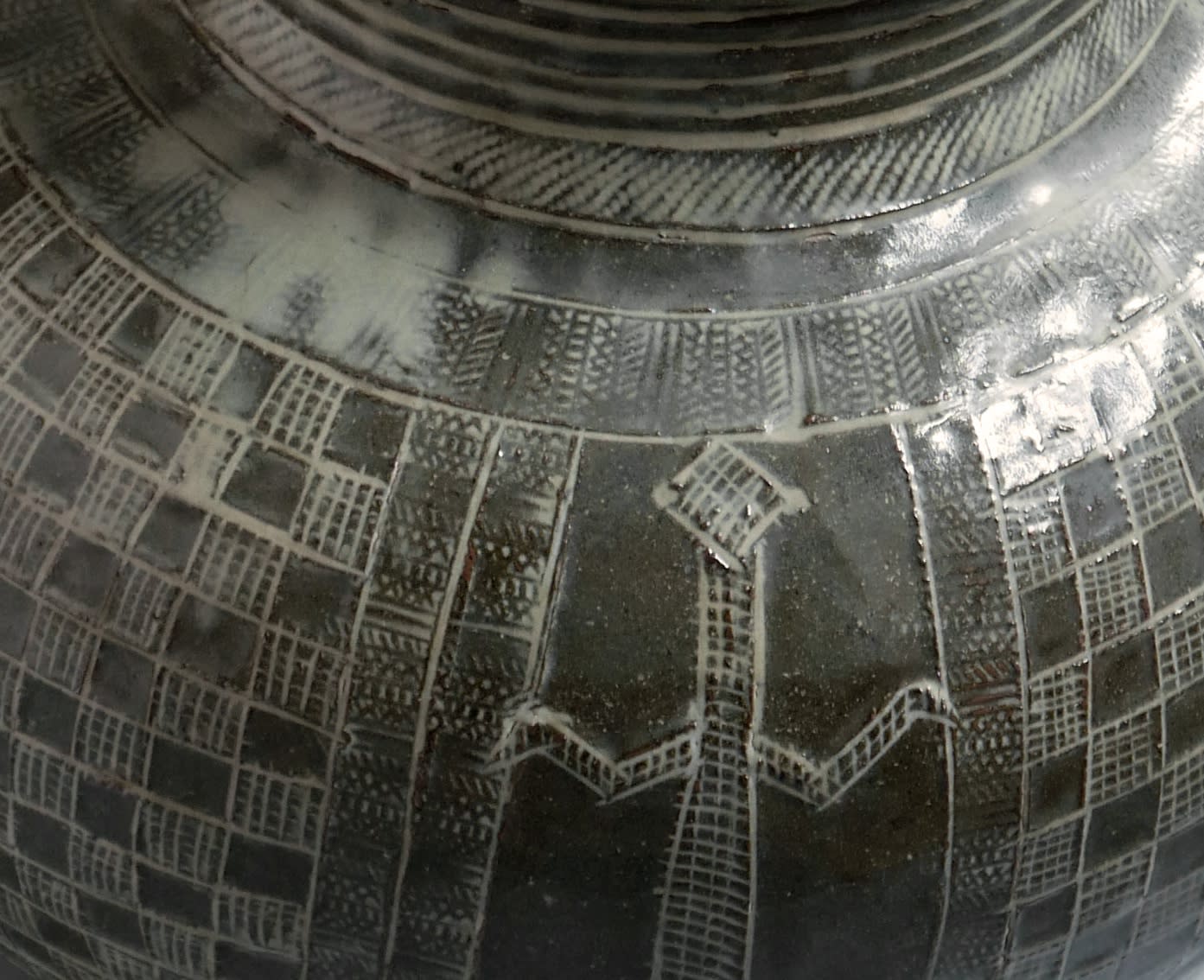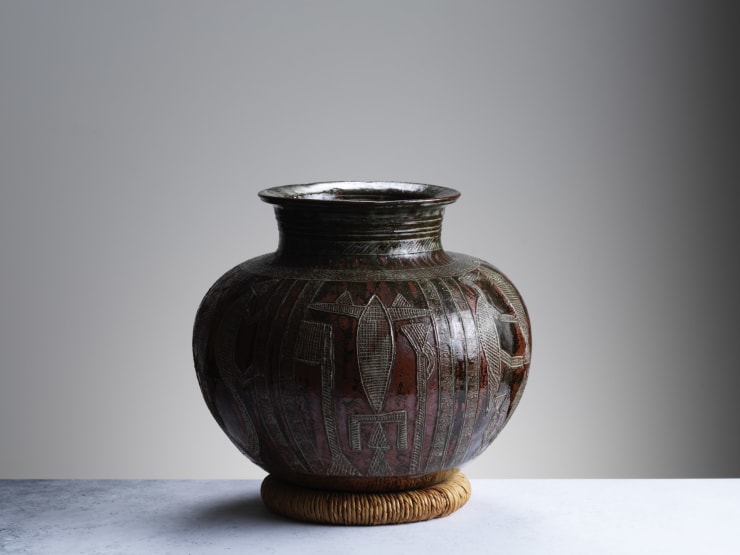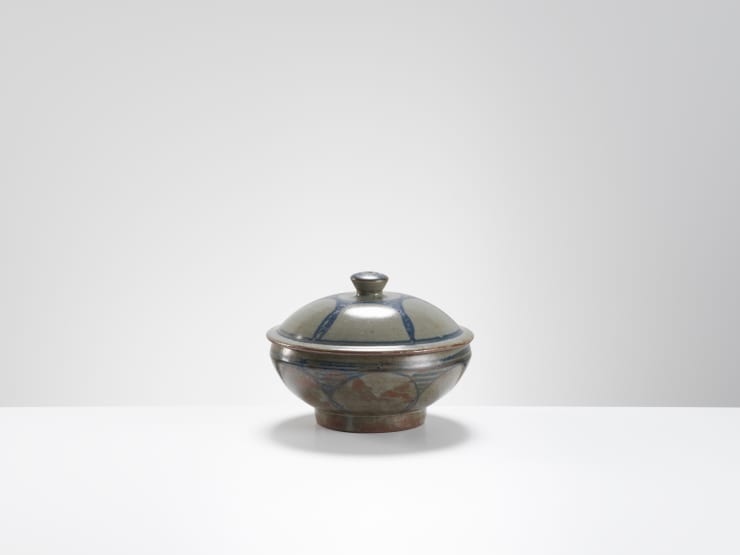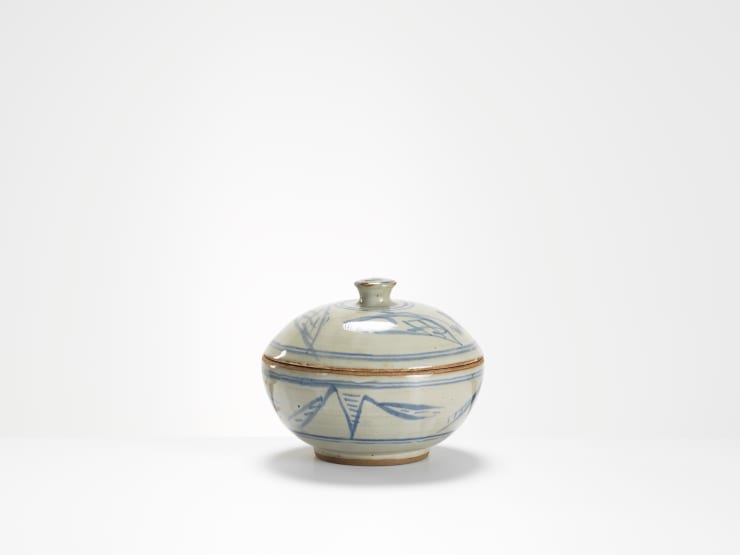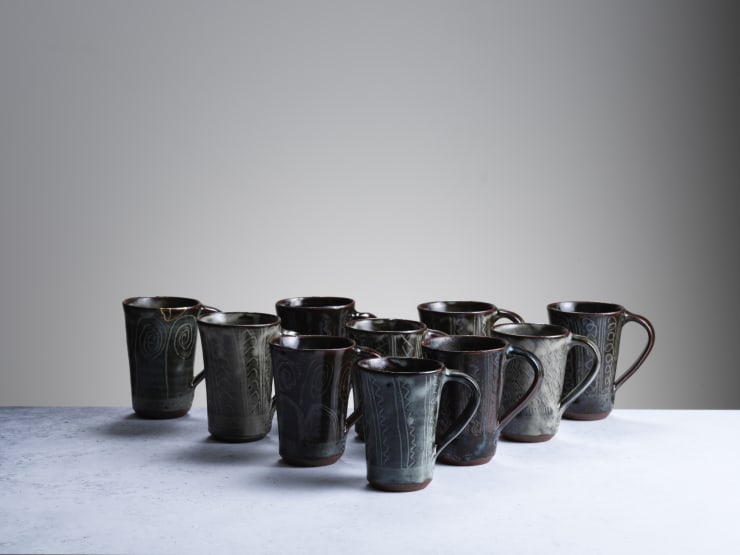-
 Ladi Kwali at work incising patterning into a water jar. Photo credit: WA Ismay, courtesy York Museums Trust (York Art Gallery).
Ladi Kwali at work incising patterning into a water jar. Photo credit: WA Ismay, courtesy York Museums Trust (York Art Gallery). -
Ladi Kwali’s generous functional pots included not only her memorable coiled and beaten water jars and other hand-built pieces, but a range of thrown bowls, tureens, beakers, jugs and tankards, richly decorated. They had a strong sense of their Nigerian heritage, but later pieces also showed Michael Cardew’s influence. Ladi Kwali (c.1925-1984) came from Kwali, a village of traditional potters producing typical coiled work. In 1954 she joined Michael Cardew’s pottery at Abuja, learning to throw, glaze and use slips on stoneware. Her more ambitious coiled pieces were enlivened by freely executed geometric and abstracted figurative decoration (lizards, snakes, birds, fish, crocodiles etc). Kwali’s work was an effective bridge between African and European influences, her pots full of expressive spirit, with her jars in particular having a powerfully sculptural quality. But there was a a strong sense of the material too, of the softness of the clay, and what Cardew would have called “kindness”. Even her smallest pieces had the almost indescribable life and energy of the most natural of potters.
David Whiting -
AVAILABLE WORKS
-
 Detail of Kwali's distinctive incised decoration with slip
Detail of Kwali's distinctive incised decoration with slip -

Pioneering Women
14 February - 1 May 2021Ladi Kwali was one of ten artists selected, crossing three generations, to form part of our exhibition Pioneering Women in 2021. -
 Ladi Kwali giving a demonstration c. late 1960s. Photographer unknown. Image kindly provided by the Craft Study Centre, Farnham, UK.
Ladi Kwali giving a demonstration c. late 1960s. Photographer unknown. Image kindly provided by the Craft Study Centre, Farnham, UK. -
ARCHIVE WORKS
-
 Water Jar, hand coiled stoneware, woodfired with incised decoration inlaid with slip
Water Jar, hand coiled stoneware, woodfired with incised decoration inlaid with slip
Join our mailing list
* denotes required fields
We will process the personal data you have supplied in accordance with our privacy policy (available on request). You can unsubscribe or change your preferences at any time by clicking the link in our emails.




